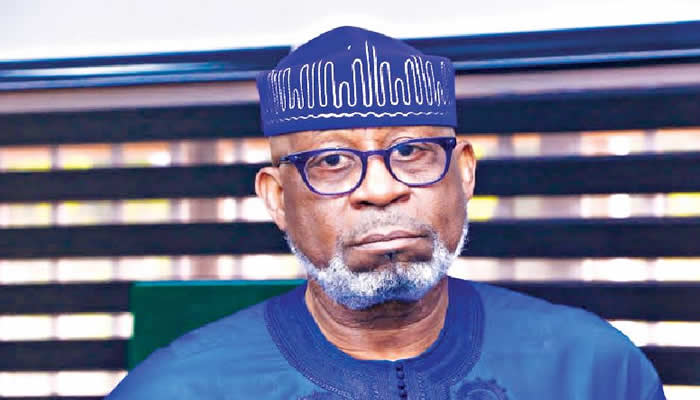Mining Other

FG issued 867 mining licences in Q1 – Minister

The Minister of Solid Minerals Development, Dele Alake, has urged African nations to take sovereign control of their natural resources by halting the export of raw minerals and prioritising domestic value addition through local processing and industrialisation.
The minister said the continued export of unprocessed mineral resources deprives the continent of critical economic benefits, including job creation, technological advancement, and sustainable development.
Alake made the call on Wednesday at the opening ceremony of the 4th African Natural Resources and Energy Investment Summit (AFNIS 2025) held at the Presidential Villa in Abuja, where he also announced that the Federal Government had issued 867 mining licences resulting in N6.95bn in generated revenue from licensing fees in just the first quarter of 2025, a direct result of Nigeria’s aggressive reforms in the mining sector.
According to Alake, the Mining Cadastre Office received over 10,000 title applications within the three months, processed 955, and approved 867 mining titles, which included 512 exploration licenses, 295 small-scale mining leases, 60 quarry leases, and five large-scale mining leases.
Alake urged other African nations to adopt similar strategies to stop exporting raw minerals and instead focus on value-added processing that creates jobs and drives industrial growth.
The minister noted that Africa’s mineral wealth holds immense potential for meeting the continental sustainable development goals.
“We seek to build a future where Africa’s natural wealth is no longer a statistic in someone else’s report. We aspire to a continent where its natural wealth serves as a driving force for industrial growth, equity, and sustainable development.
“Let us build a continent where Africa’s natural wealth serves as a driving force for industrial growth, equity, and sustainable development. We have implemented sweeping reforms to formalise mining and boost domestic value addition. New policies now require every mining license to include a plan for local processing, and we have increased enforcement.
“This aggressive licensing drive, along with higher licensing fees and rigorous compliance checks, is a major reason behind the sharp rise in sector revenue,” Alake stated.
He added that sector revenues grew from N6bn in 2023 to a record N38bn in 2024, driven by tighter regulations, a crackdown on illegal mining, and a new policy mandating local processing of minerals before export.
Highlighting Nigeria’s reform gains, the minister said the country attracted over $800m in processing-related investments in 2023 alone, further demonstrating investor confidence in the renewed governance framework. The reforms, he said, were inspired by President Bola Tinubu’s Renewed Hope Agenda, which prioritises industrialisation, local content, and economic diversification.
In his remarks, the Kenyan Cabinet Secretary, Ministry of Mining, Blue Economy, and Maritime Affairs. Hassan Joho commended the continent for identifying its problems and stressed that “it’s time for African countries to work together in creating jobs and wealth that can transform the region and the people for global development.”
In his welcome address, the Permanent Secretary of the Solid Minerals Development, Faruk Yusuf Yabo, reiterated the Ministry’s commitment to driving the implementation of the “Renewed Hope Agenda” through partnerships that prioritise environmental, social, and governance principles.
He also commended the summit as a platform for African countries to forge a united front in attracting green investments, developing clean energy infrastructure, and repositioning the continent as a key player in the global energy transition.












